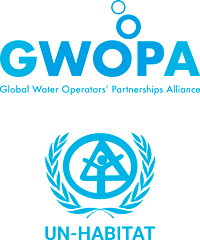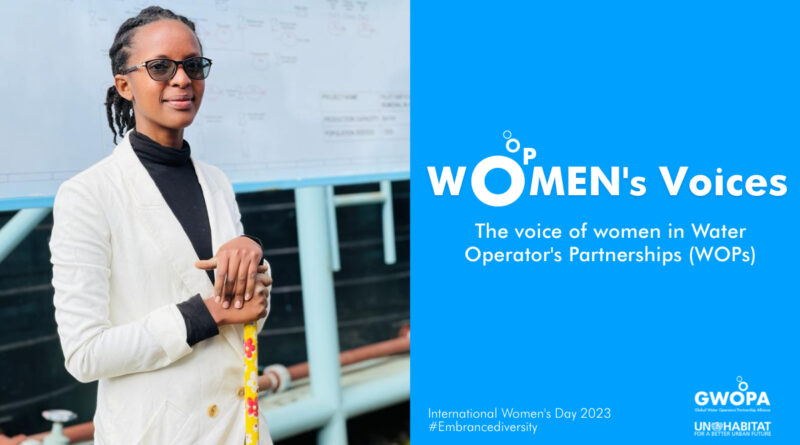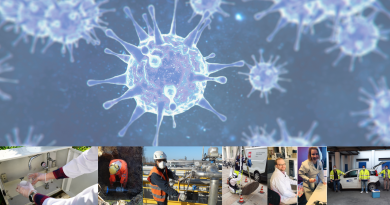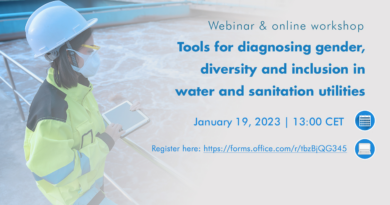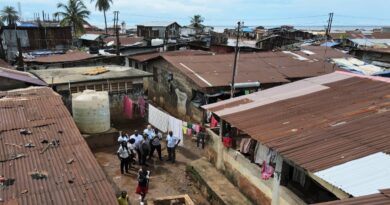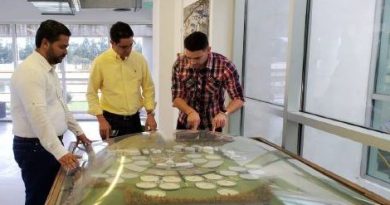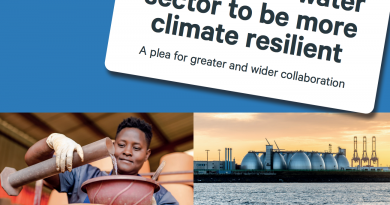WO(P)MEN’s Voices
GWOPA believes that utilities can play a significant role in diminishing and eradicating hurdles women face in the water sector. To celebrate the 2023 International Women’s Day, we have launched the campaign, “WO(P)MEN’s Voice,” to inspire everyone, especially youth, and women, and to improve gender equality in the WOP sector. Five women working in the WOPs; Hadi Toure from Mali, Mai Flor from the Philippines, Valarie Suaraz from Argentina, Alphonsina Ntibingwa from Nigeria, and Faustina Boachie from Ghana were interviewed to understand their challenges as women working in the male-dominated arena and share their visions that can create a gender-equal and inclusive water sector. Here are some key points we learn from our inspiring WO(P)MEN.
Access to STEM Education
Despite the fact that there are more girls in school than ever before, they often do not have the same opportunities as boys when it comes to completing and benefiting from the education they choose. Gender norms and social expectations still influence children’s choice of education and the professional paths they want. Consequently, gender stereotypes often impose on girls and women; they are disproportionately underrepresented in STEM fields (science, technology, engineering, and math) education and jobs. According to the World Bank report (2019), women represent only an average of 20% of the workforce in water utility operators, likely affecting the delivery of inclusive services.
The water sector is heavily dominated by men. Ntibingwa said, “men are encouraged and given the confidence to take on heavy tasks since their childhood. So, you can see most plumbers, technicians, and engineers are men.” Access to education is key to empower women and girls to advance their technical and science careers, especially STEM, as Mai stressed that “it has to do with the education. There is an increasing number of female engineers, but still not many.” Also, seeing female engineers can inspire a new generation of female engineers as Ntibingwa emphasized, “we need to set the example to inspire them, so girls can see that being an engineer is possible.”
Access to quality education is also critical for women to advance STEM careers. Due to the cultural barrier to girls’ education, Hadi found herself among the few women engineers in the Mali utility. However, she still wanted to widen her technical knowledge further to advance her career. Because of Covid-19, many online technical courses were open for free. Hadi had more opportunities to access the courses, which helped her learn hydraulic models. “It was not easy to access these courses during the normal time, but because of Covid, I did not need to pay for the course or flight ticket to be in class. With online platforms, an expert guided me through the modeling software, and I think this is like the mentorship aspect that is really important for someone like me to be really skilled in hydraulic modeling but lacking access.”
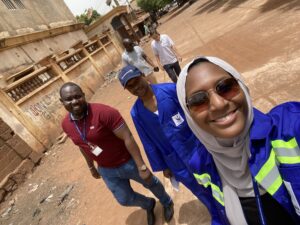
Enabling environment in the utility sector
Although achieving gender equality is increasingly acknowledged in the water sector, there is still a need to close the gaps between women and men. Therefore, enabling environments are essential to support processes of empowerment and leadership, whether actions are intervened at national and sectoral levels to create transformative changes for women.
For example, utility companies such as Waterlink from the Philippines, AySA S. A. from Argentina, and Ghana Water, provide daycare support for them, which plays a crucial role in improving their performance and career paths. Valeria pointed out that her utility company is gender friendly. “Our office has provided childcare since 1984, and recently men can take parental leave”. In addition, her company has a gender equality department that ensures that women and men have equal opportunities in the workplace. Similar to Argentina, the Philippine society is more progressive when it comes to gender equality. Mai described that thanks to the women’s rights movement, women and men have equal rights in education, economic and political participation. Her female colleagues do not have to worry about the promotion of their careers after giving birth due to the company’s gender-sensitive policy.
Engaging men in advocating women’s rights and gender equality
Achieving the aim of gender equality is a daily struggle that needs engagement from all sides. Men can play an important role in empowering women. Faustina shared her experience before becoming a chief manager at Ghana Water. Her senior male colleague encouraged her to take the role in a higher managerial position. “Sometimes, positions come up, and women are asked to apply. They will tell you they are not interested. Even I said that because I felt I was not ready. Women have so many tasks to do at home, and we are afraid we are not able to take senior positions. Then, my senior colleague told me I should try it. He empowered me.” She further underlined that including men in promoting gender equality can lead to better outcomes.
All WO(P)MEN agreed that gender norms are slowly shifting over time in a positive direction. In some contexts, women may have better positions than others; however, more work still needs to be done in creating a gender-inclusive workplace environment at the utility level. It is very important to note that there is no single solution to eliminate gender barriers. Therefore, it requires cross-sectoral efforts and all stakeholders to be involved in pushing gender equality forward.
Gender mainstreaming and inclusive service are part of GWOPA’s thematic strategies. Our work aims to capitalize on the knowledge, networks, and strengths within its Alliance to increase the pace with which utilities tackle sustainability challenges. We will keep mobilizing actions to achieve the Agenda 2030 vision for people, planet, prosperity, and peace.
Find out our works on gender mainstreaming here:
